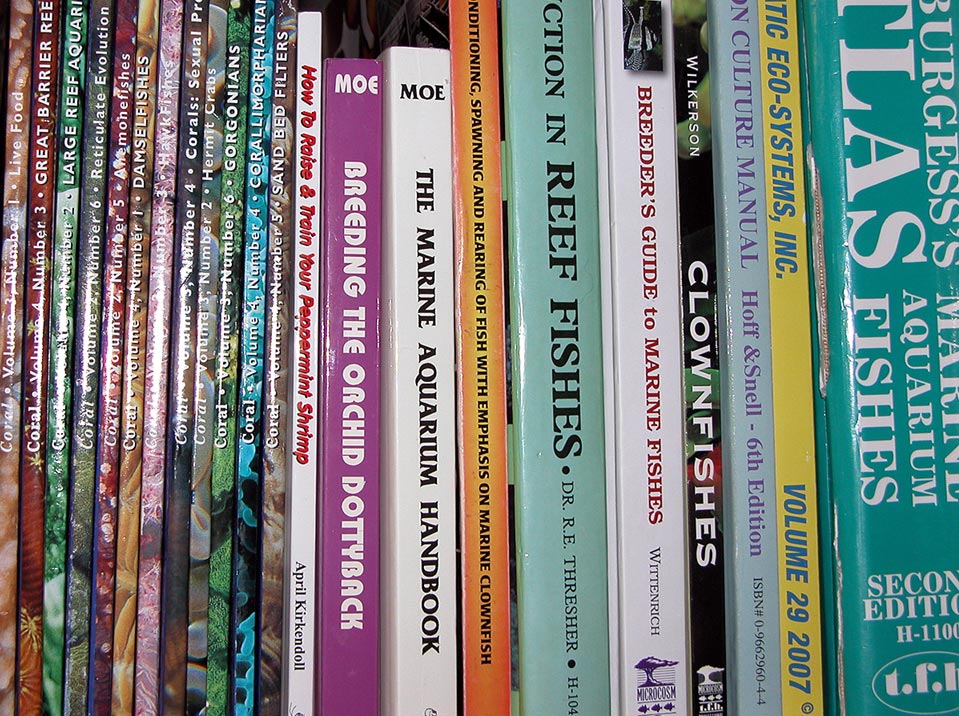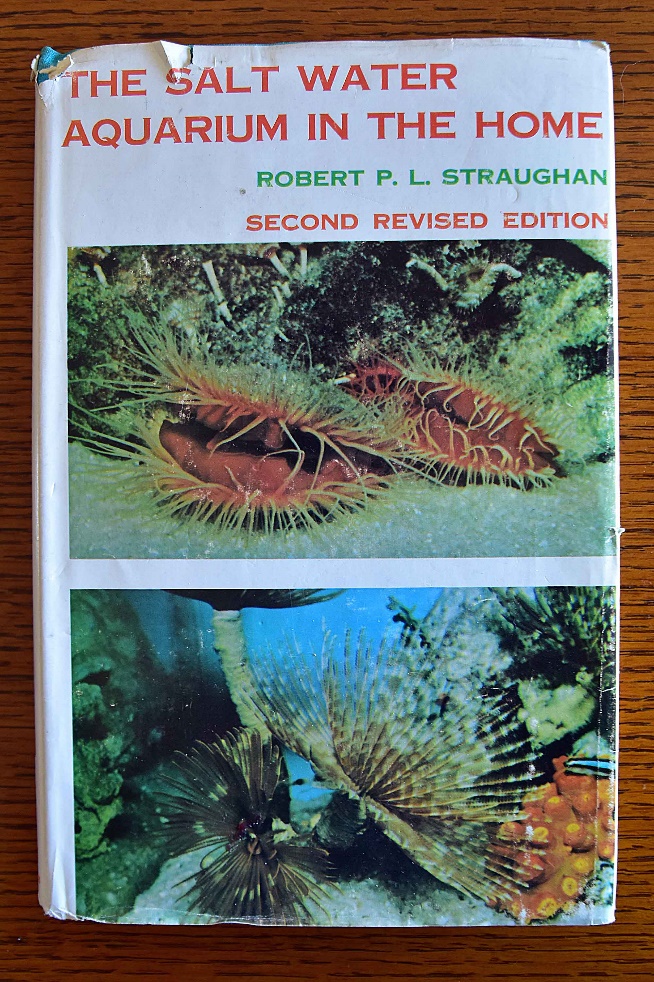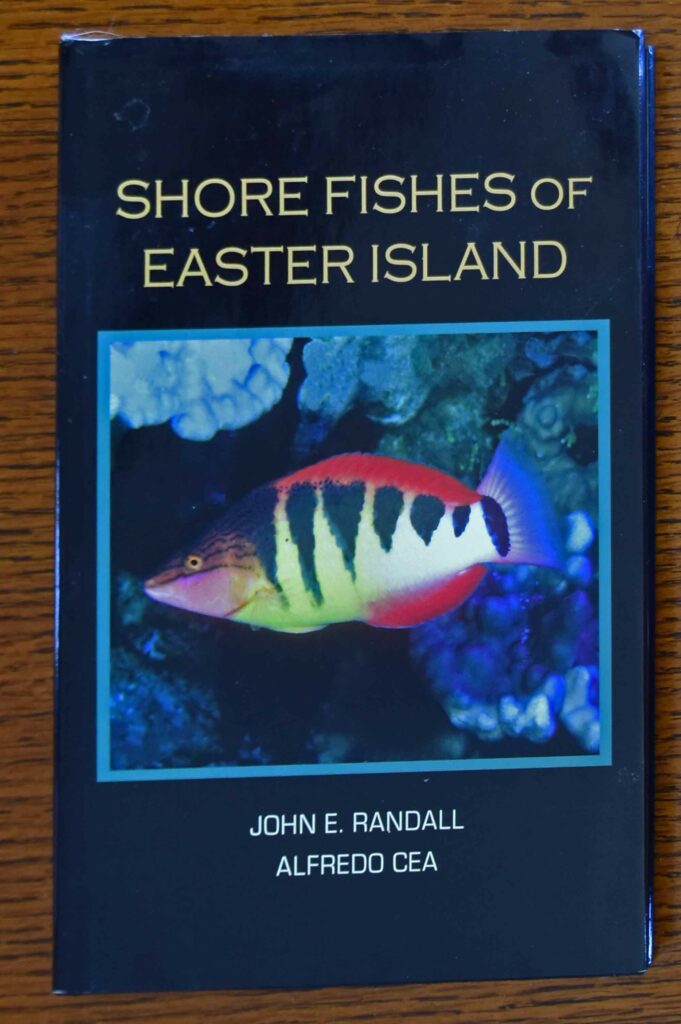
“While the Internet is a great resource for many aspects of life, it still is not a direct replacement for reference books.”
by Jay Hemdal
Aquarium Curator
The Toledo Zoo and Aquarium
“There are times when I think that the ideal library is composed solely of reference books. They are like understanding friends – always ready to change the subject when you have had enough of this or that.” ―J. Donald Adams
In recent years, I’ve commiserated with other authors in the aquarium field about the drastic decrease in the use of printed material as an information resource in the aquarium hobby. New book publications have markedly decreased, some magazines have ceased operation, and sales of all printed volumes has decreased. The obvious direct cause for this is the availability of free information on the Internet. People look for a “quick fix” for their aquarium problems; running a Google search is quicker and less expensive than buying printed resources. There may be other factors in play here — a general decrease in classic hobbies as an activity due to other diversions such as computer games, less free time, or perhaps less discretionary income being available to people overall.
While the Internet is a great resource for many aspects of life, it still is not a direct replacement for reference books. Much of what is published online is not reviewed by any editorial process. Typographical errors, as well as factual errors in content, abound. For hobbyist message boards, the loudest voice wins, and you often have people pushing incorrect information out to others, due to profit motivation, spite, or just plain ignorance.
Strikingly, as an aquarium curator, there has been another massive change in how people participate in their hobby: public information inquiries. Thirty years ago, as Fishes Department Manager at the Shedd Aquarium where I worked, I needed to have our receptionist bundle all of my telephone “fish calls” into the last hour of the day. If I hadn’t done that, I never would have gotten any work done, as these phone calls would interrupt me multiple times throughout each day. I even recall having to walk out of my office with the phone still ringing, or else I wouldn’t have been able to leave work for the day. As the new curator of fishes for the Toledo Zoo, in 1989, I needed to establish a similar “call-in” time for these fish calls. As the years went on, the number of calls dropped from dozens a day to one or two a week. Presently, I can accept these sorts of calls at any time, because they have become so infrequent.
Of course, I see the horrible irony of my publishing this particular article online, and not in a print publication. Two reasons account for this: this blog is associated with and supports what is arguably the premier aquarium magazine resource, and secondly, this topic simply does not have the broad appeal required for material to be successfully published in a physical format.
My First Real Aquarium Book
I remember this as if it were yesterday: my parents bought me a copy of Robert P. L. Straughan’s The Salt Water Aquarium in the Home as a Christmas present in 1971. I had the stomach flu, and as I lay in bed on Christmas day, my parents gave me this book, and then they went out to deliver my morning newspaper route, as I was too sick to do it myself. I was not too sick, however, to read the book cover-to-cover that day! Over the next five years or so, I had that book completely memorized. Sure, the information it contained was somewhat flawed (even back then), but it was all I had to support my marine aquarium hobby that would eventually become my career.
Building Your Library
Like the business model for movie releases, acquiring aquarium books in an economical fashion depends on your timing. If you acquire books when they are first published, you’ll expect to pay the list price (this is comparable to going to the theater on a Saturday night). If you can wait some time, those same volumes will become available at a discount, and then at a much lower cost as used books (think Netflix). If you wait even longer, this same material will filter down into the Internet and eventually be available for free. It really all depends on how pressing your information needs are, and how you decide to retain that information (on computer or in book form).
My Favorite Titles
The following are some of my favorite, most read reference books in my home office library. Of course, the subject matter I find helpful may not be as important to you, but these books are all well-written and informative. I avoided listing any of the books I’ve written myself, just to avoid appearing self-serving. However, I frequently refer to them in order to refresh my memory of what I’ve written about in the past. For example, I recently had a young man email me questions about breeding angelfish. I picked text out of my 2003 Aquarium Fish Breeding book and used that in my reply.
Scott Michael’s Reef Fishes series –
A very good “picture book” series for marine aquarium fishes. Unlike many other similar ones, this series includes aquarium husbandry data.
Joseph Nelson’s Fishes of the World –
The premier print resource for fish taxonomy down to the genus level. While each edition almost immediately becomes outdated due to taxonomic changes, it can still be used as an official reference until the next edition is published.
Stephen Spotte’s Captive Seawater Fishes –
Although a bit “long in the tooth,” Stephen Spotte’s works still contain very advanced marine aquarium husbandry information.
Gunther Sterba’s Freshwater Fishes of the World –
For freshwater aquarists, this book from the 1950s still contains some of the best husbandry information, although its taxonomy is outdated.
Michael Stoskopf’s Fish Medicine –
One of the best references for fish medicine. It is very pricey, even as a used volume.
Magazines and Journals
While there are now many online magazines and journals, there are still some that are primarily found only as printed versions. For these, if you do not subscribe and then catalog them, the information and images that they contain won’t be available to you.
CORAL and AMAZONAS — two related marine and freshwater magazines — are the premier print resource for professional and home aquarists alike.
TROPICAL FISH HOBBYIST is a venerable magazine that in its heyday was the premier information resource for all home aquarists. It later focused more on advanced freshwater topics, and more recently has offered more basic information on general aquarium topics.
One online resource that I use extensively is Drum and Croaker. Advertisement-free, this public aquarium journal has been published since the 1950s. While not peer-reviewed, the simple peer pressure placed on the authors from other public aquarists helps ensure that the information it presents is accurate and timely. Edited for many years by Pete Mohan of the Akron Zoo, it contains cutting-edge aquarium information targeted at professional aquarists. Some of the information contained in Drum and Croaker isn’t applicable to home aquarists, but much of it is. Check it out at: http://drumandcroaker.org/
Collectible Books
Some books may be of interest not because of their timely information, but rather because they have become collectibles or even antiques. Thirty years ago, my wife bought me a fine copy of Exotic Aquarium Fishes by William Innes. Long considered the classic aquarium book, it was first published in 1935 through at least 21 editions until around 1994. The earlier editions had green covers, while the very earliest ones have an image of a goldfish in gilt, and mid-century editions show a school of Rasbora on the cover. Later editions had yellow covers and were of a different format, and are not very collectible.
Related to this is the hobby of collecting antique fish prints as art. I wrote about this in 2007: http://www.advancedaquarist.com/2007/5/aafeature1
Conclusion
Go out to your local bookstore (or, much more commonly, go online) and buy a book and begin building your home reference library. It’s a great way to build your aquarium skills with solid information.







Great article…love your idea